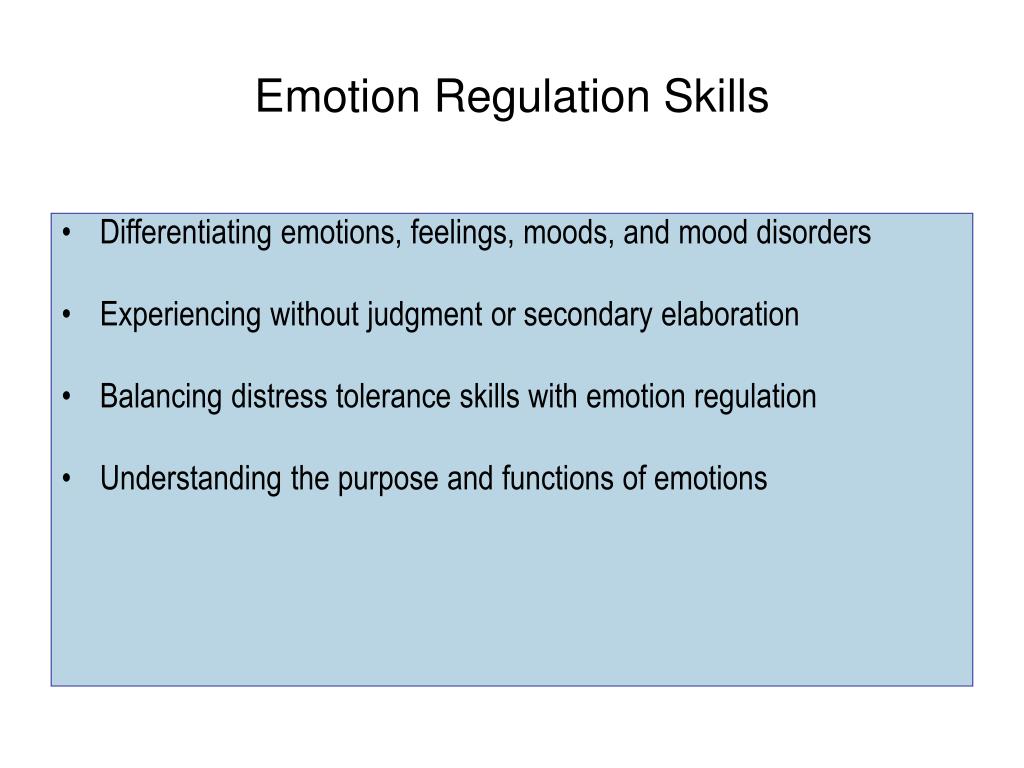

Participants' regulation of negative and positive emotions was assessed using laboratory measures. Emotional regulation skills are trained abilities that help us manage emotional responses to external situations. Yes, that’s right If we can simply NAME an emotion, it can calm our brain down. Doing the opposite action will help you change your emotion. Your body causes you to react to emotions in a specific way. If you are sad, you might withdraw from your friends. Interpersonal effectiveness, which involves the ability to interact and effectively communicate with othersskills that. Distress tolerance, which involves coping with stress and difficult emotional reactions in the moment. If you are angry, you might fight or argue. Emotion regulation, the heart of the DBT approach, which involves learning to manage emotions in different situations. To test this hypothesis, participants' negative and positive emotion differentiation was assessed using a 14-day diary protocol. First, the ability to recognize our feelings regulates our emotions when we can name it, we can tame it. When you experience an emotion, a behavior usually comes with it. In particular, we hypothesised that emotion differentiation and emotion regulation would be positively related in the context of intense negative emotions, where the press for emotion regulation is generally greatest. Certain individuals with AN may especially benefit from a focus on developing emotion regulation skills in the acute stages of illness.

Drawing on self-regulation theory, we hypothesised that individuals with highly differentiated emotion experience should be better able to regulate emotions than individuals with poorly differentiated emotion experience. This study adds to a growing literature suggesting that emotion regulation deficits are associated with eating disorder symptoms in AN. Others experience emotions in a relatively undifferentiated manner, treating a range of like-valence terms as interchangeable. Some experience emotions in a highly differentiated manner, clearly distinguishing among a variety of negative and positive discrete emotions.

Individuals differ considerably in their emotion experience.


 0 kommentar(er)
0 kommentar(er)
